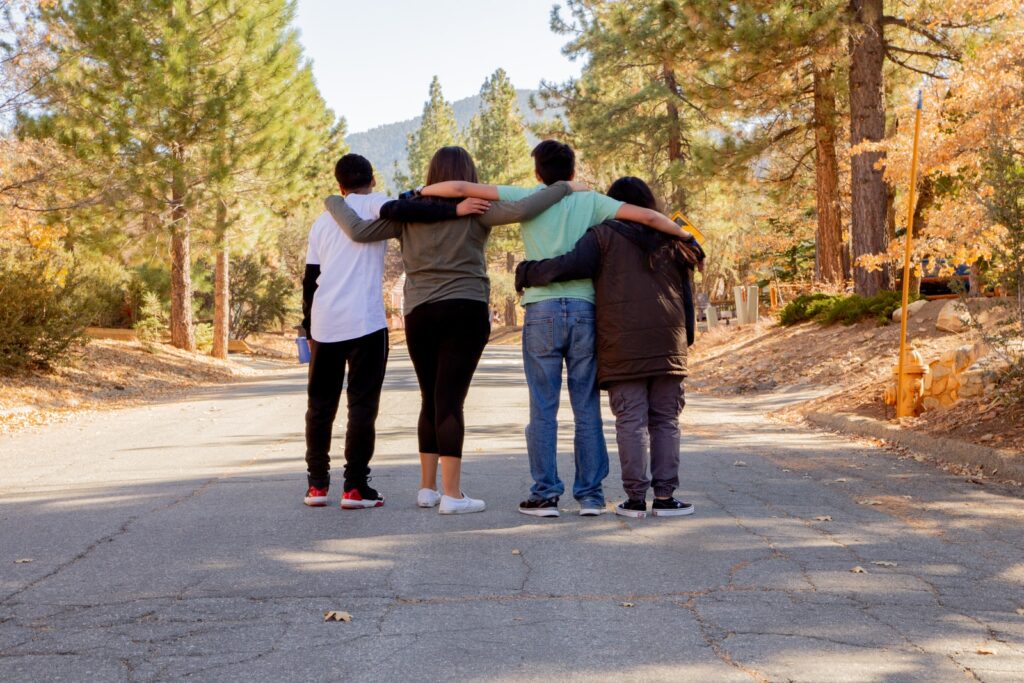Child Abuse Prevention


Child Welfare Resources
__________
In the United States, all children, regardless of their immigration status, are entitled to protection from child abuse and neglect under the law. These laws serve to keep children free from exploitation, harm, and danger.
It is important for social services providers working with Unaccompanied Children (UCs) to educate children about their rights in the U.S., including what constitutes child abuse/neglect and protections available for children.
Child abuse and neglect definitions vary by state but generally include:
- Physical abuse: the use of physical violence to discipline a child, often resulting in physical injury like marks or bruises.
- Verbal abuse: threatening or insulting a child.
- Emotional abuse: rejecting, shaming, humiliating, withholding emotional support, love, and care from a child.
- Sexual abuse: sexual molestation or exploitation of a child, or touching a child inappropriately.
- Neglect: the failure of a caregiver to meet a child’s needs, including physical needs (such as food, clothing, shelter, etc.), as well as emotional, educational, and medical needs.
Check out these links from the Child Welfare Information Gateway to learn more and search the laws in your state:
- What Is Child Abuse and Neglect? Recognizing the Signs and Symptoms
- Search Child Abuse and Neglect Laws by State
These links from Stanford Medicine provide guidance on talking to children and teens to screen for abuse:
Child protective services in the U.S. are required by law to screen all reports of abuse and neglect.
Mandated reporters are people who, because of their profession, are legally required to report any suspicion of child abuse or neglect to the relevant authorities. This includes case workers, social workers, teachers, educators, counselors and therapists, and medical professionals.
The links below from the Child Welfare Information Gateway will help you understand the role of mandatory reporters and how to make a CPS report in your state:
The below resources provide information on best practices for child welfare workers working with immigrant families.
- Immigration and Child Welfare (Child Welfare Information Gateway)
- Immigrant Families and Child Welfare Systems: Emerging Needs and Promising Practices (MPI)
- Best Practices Guide for Working with Families from Refugee Backgrounds in Child Welfare (CASCW)
- Raising Children in a New Country: An Illustrated Handbook (BRYCS)
- What Is Trauma-Informed Care? (University at Buffalo)
- Do’s and Don’ts of Child-Friendly Interviewing (BRYCS)
- USCRI’s Independent Living Plan for youth approaching 18 years old (English/Spanish)
In addition, be sure to review our Habilidades para la Vida page within the Información para Jóvenes section of the UC Resource Center.
Providers working with unaccompanied children should discuss safety planning with children and families proactively and preventatively. This may include psychoeducation on children’s rights in the United States, safe places and adults of trust, 911 and other emergency/crisis hotlines, and preventative conversations with the sponsor/caregiver about parenting practices, an age-appropriate supervision plan, and other ways the caregiver will commit to keeping the child safe.
Although there is no “one size fits all” template for safety planning, as the discussion/plan should be individualized to meet the needs of the family, USCRI has developed the following template in English and Spanish to help guide providers through these important conversations with families.
Interested in learning more? Check out the following additional resources.
- Working with Immigrant Families (Child Welfare Information Gateway)
- Child Welfare Resources and Online Training (BRYCS)
- The Center on Immigration and Child Welfare – Training & Technical Assistance
- A Social Worker’s Toolkit for Working with Immigrant Families (The Center on Immigration and Child Welfare):
- 2023/2024 Prevention Resource Guide (Administration for Children and Families)
Our UC Resource Center offers videos and handouts in Spanish for families. Click the link to browse the resources on Prevención de Violencia and share them with your Spanish-speaking clients!

